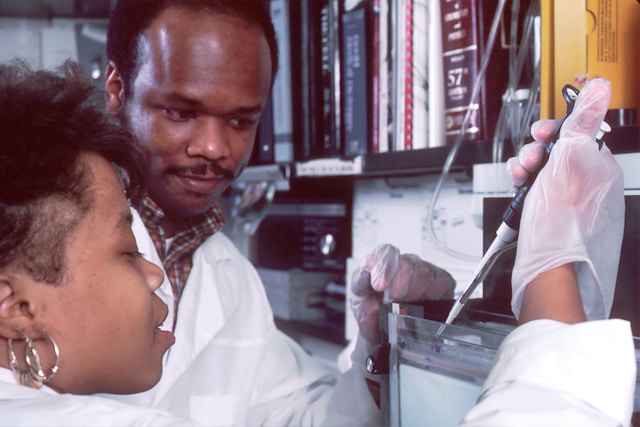
The healthcare industry is on the brink of a technological revolution. As the Internet of Things (IoT) continues to evolve, its integration into healthcare is creating “Smart Hospitals”, facilities where interconnected devices and advanced technologies work in tandem to improve patient care, streamline operations, and enhance the overall healthcare experience. The concept of Smart Hospitals represents a significant leap forward in how we deliver and manage healthcare, offering the potential to transform patient outcomes and operational efficiency in ways previously unimaginable.
The Rise of Smart Hospitals
Smart Hospitals are the epitome of digital transformation in healthcare. At their core, these facilities leverage IoT technologies to create an interconnected environment where medical devices, patient monitoring systems, hospital infrastructure, and even administrative functions are all integrated into a cohesive, data-driven system. The goal is to improve patient outcomes, reduce operational inefficiencies, and provide healthcare professionals with the tools they need to deliver more effective and personalised care.
IoT in Healthcare: The Backbone of Smart Hospitals
The Internet of Things refers to a network of interconnected devices that communicate with each other and share data in real-time. In the context of healthcare, IoT encompasses a wide range of applications, from wearable devices that monitor patient vitals to smart beds that track patient movements and adjust for comfort.
One of the most significant advantages of IoT in healthcare is its ability to collect and analyse vast amounts of data. Wearable devices, for example, can continuously monitor a patient’s heart rate, blood pressure, and other vital signs, sending real-time data to healthcare providers. This constant stream of information allows for early detection of potential health issues, enabling proactive interventions that can prevent complications and improve patient outcomes.
Moreover, IoT devices in hospitals can optimise operational efficiency. For instance, smart infusion pumps can automatically adjust medication dosages based on real-time patient data, reducing the risk of human error. Similarly, IoT-enabled inventory management systems can track medical supplies, ensuring that essential items are always available when needed and reducing waste.
Enhancing Patient Care Through Smart Technologies
Smart Hospitals are designed with the patient at the centre of care. By leveraging IoT and other digital technologies, these facilities offer a more personalised and responsive healthcare experience.
- Remote Monitoring and Telemedicine:
Smart Hospitals are at the forefront of telemedicine, enabling remote consultations and continuous patient monitoring. For patients with chronic conditions, IoT devices such as wearable ECG monitors or glucose metres allow for real-time tracking of vital signs, which can be remotely accessed by healthcare providers. This not only improves the management of chronic diseases but also reduces the need for frequent hospital visits, enhancing the patient’s quality of life.
- Smart Rooms:
In a Smart Hospital, patient rooms are equipped with IoT devices that can monitor everything from room temperature to the patient’s movement and vital signs. Smart beds can adjust automatically to prevent bedsores, while lighting and environmental controls can be tailored to individual patient needs. Additionally, patients can use voice-activated devices to control their environment, access their medical information, or even communicate with their healthcare team.
- Advanced Diagnostics and Treatment:
IoT devices in Smart Hospitals enable more accurate diagnostics and tailored treatments. For example, connected imaging systems can integrate patient data from various sources, providing a comprehensive view of the patient’s health. This data integration allows for more precise diagnoses and personalised treatment plans. Additionally, robotic surgery systems, guided by real-time data, offer greater precision in surgical procedures, leading to faster recovery times and better patient outcomes.
Operational Efficiency and Cost Reduction
While patient care is the primary focus of Smart Hospitals, these facilities also offer significant benefits in terms of operational efficiency and cost reduction.
- Predictive Maintenance and Asset Management:
IoT devices in Smart Hospitals can monitor the condition of medical equipment and infrastructure in real-time. Predictive maintenance algorithms analyse this data to predict when equipment is likely to fail, allowing for timely repairs and reducing downtime. This proactive approach not only ensures that critical medical devices are always operational but also extends their lifespan, reducing replacement costs.
- Streamlined Workflows:
Smart Hospitals can automate routine tasks, freeing up healthcare professionals to focus on patient care. For example, IoT-enabled systems can automate patient admissions, track the location of medical staff and equipment, and manage patient flow through the hospital. By reducing administrative burdens and optimising workflows, these technologies improve efficiency and reduce the likelihood of errors.
- Energy Management:
In addition to improving patient care and operational efficiency, Smart Hospitals also contribute to sustainability. IoT-based energy management systems can monitor and control the hospital’s energy consumption, optimising heating, cooling, and lighting based on real-time occupancy data. This not only reduces the hospital’s carbon footprint but also results in significant cost savings.
Overcoming Challenges and Ensuring Security
While the benefits of Smart Hospitals are clear, their implementation is not without challenges. One of the primary concerns is data security. The vast amount of data generated by IoT devices, coupled with the critical nature of healthcare information, makes Smart Hospitals a prime target for cyberattacks. Ensuring the security of patient data and maintaining patient privacy are paramount.
To address these concerns, Smart Hospitals must implement robust cybersecurity measures. This includes encryption of data, secure communication protocols, and regular security audits. Additionally, healthcare providers must be trained on best practices for data security and patient privacy.
Another challenge is the integration of legacy systems with new IoT technologies. Many hospitals still rely on outdated infrastructure that may not be compatible with modern IoT devices. To fully realise the potential of Smart Hospitals, healthcare organisations must invest in upgrading their IT infrastructure and ensure seamless integration between new and existing systems.
The Future of Smart Hospitals
As IoT technology continues to evolve, the concept of Smart Hospitals will only grow in significance. In the future, we can expect to see even more advanced applications of IoT in healthcare, such as AI-driven diagnostics, personalised medicine based on genetic data, and fully automated hospitals where most routine tasks are handled by robots.
The potential for Smart Hospitals to revolutionise healthcare is immense. By harnessing the power of IoT and other digital technologies, these facilities can provide more personalised, efficient, and effective care, ultimately leading to better patient outcomes and a more sustainable healthcare system.
Conclusion
Smart Hospitals represent the future of healthcare, a future where technology and medicine converge to create a more connected, efficient, and patient-centred environment. The integration of IoT into healthcare is not just an incremental improvement; it is a transformative shift that has the potential to redefine how we think about and deliver care. As Smart Hospitals become more prevalent, the benefits they offer in terms of improved patient outcomes, operational efficiency, and cost savings will become increasingly evident, paving the way for a new era in healthcare.
This article demonstrates how Smart Hospitals, through the integration of IoT, are revolutionising the healthcare industry by enhancing patient care, optimising operations, and overcoming challenges related to security and infrastructure. As the healthcare industry continues to embrace digital transformation, Smart Hospitals are set to play a pivotal role in shaping the future of healthcare delivery.
Taiwo Alawiye’s Bio:

Taiwo Alawiye is a seasoned expert in digital technology, specialising in UX design, product management, and digital health innovation. With a Master’s degree in Business Innovation with eBusiness, Taiwo has extensively researched how digital technology can enhance user experiences in various sectors, particularly healthcare. Over the years, she has contributed to the development of cutting-edge health tech solutions, such as the AI-powered My Health Links app, which aims to bridge healthcare accessibility gaps in Africa and the rest of the world.
Her work has not only garnered recognition within the academic community through published research but has also led to the successful implementation of digital health solutions that improve patient outcomes and operational efficiencies in healthcare. Taiwo is passionate about leveraging technology to create user-centred solutions that drive meaningful change in society.





